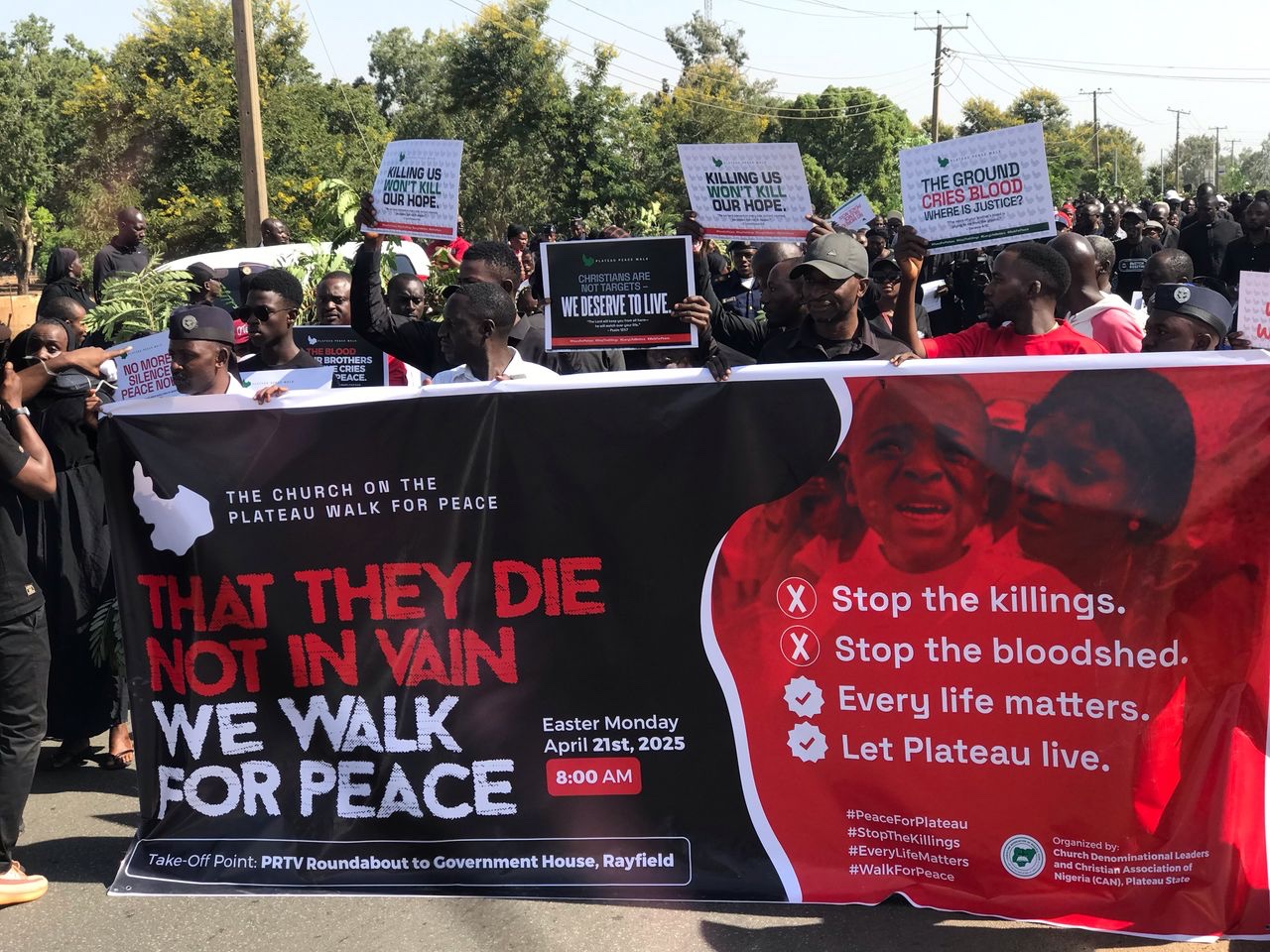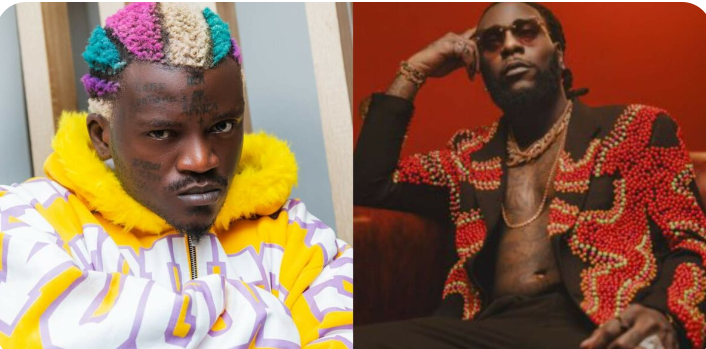
Tensions Boil Over as Jos Erupts in Protest Against Continued Killings by Suspected Fulani Militants

Jos, the capital of Plateau State, was thrown into chaos this morning as angry protesters flooded the streets in response to the continuous killings of indigenous residents by gunmen suspected to be Fulani militants. The protests, which started in the early hours of the day, quickly gained momentum as more residents joined in, expressing their frustration, fear, and grief over the spate of violence that has plagued several communities in the state for years. Carrying placards with bold inscriptions like "Stop the Killings Now!", "Our Lives Matter", "Justice for Plateau", and "Declare Fulani Militants Terrorists", the protesters marched through major roads, chanting slogans and demanding that both state and federal governments take immediate and decisive action.
At the heart of this unrest is a growing sense of abandonment. For years, communities in Plateau State, especially in local government areas like Bokkos, Mangu, Barkin Ladi, Riyom, and Bassa, have suffered repeated attacks. Villages have been burnt to the ground. Women and children have been slaughtered. Farmlands have been taken over. Survivors recount stories too painful to forget—midnight raids, gunshots piercing the silence, the smell of burning homes, and the sight of lifeless bodies of loved ones. While the perpetrators are often labeled as "unknown gunmen," many locals believe they are Fulani militants, armed and organized, with a clear goal of taking over ancestral lands.
This morning’s protest was not just another routine demonstration. It was a cry from a wounded people. Men, women, and youths—some of them barefoot, others dressed in black—gathered at various junctions and marched toward the Government House in Jos. Some held photographs of relatives who had been killed. Others carried crosses with names of villages written on them—silent memorials to the dead. There was anger, yes, but there was also deep sorrow. One elderly woman sat on the roadside weeping, clutching a blood-stained shirt she said belonged to her grandson, killed just last week in one of the attacks. She had no words, only tears. Her pain echoed the pain of hundreds of families across Plateau State.
Security forces, including police officers and soldiers, were deployed to maintain order, but the atmosphere remained tense. While the protest was largely peaceful, there were a few tense moments as some youths attempted to block major roads and set tyres ablaze. The intervention of local leaders prevented any major clashes, but the message was clear: Plateau people are tired of dying in silence. They want action, not speeches. They want justice, not condolence visits.
The protesters handed over a petition to state officials, demanding that the government officially recognize the Fulani militant groups as terrorist organizations. They argued that the continuous use of vague labels like "bandits" or "unknown gunmen" only shields the criminals from accountability. They also called on President Bola Ahmed Tinubu to visit the affected communities personally, see the devastation for himself, and deploy adequate military support to end the bloodshed. According to one youth leader, “We are not asking for too much. We are only asking for the right to live.”
Church leaders, traditional rulers, and civil society groups have also thrown their weight behind the protest, urging government authorities not to ignore the cries of the people. The Christian Association of Nigeria (CAN), Plateau State chapter, released a statement condemning the killings and calling for national mourning. “What is happening in Plateau is nothing short of genocide,” the statement read. “Our people are being killed not because they stole, not because they committed any crime, but simply because of who they are and where they come from.”
For many in Plateau, the silence of the federal government has been deafening. Despite numerous attacks and rising death tolls, few arrests have been made. Residents say the attackers often operate for hours without interruption, retreating before security operatives arrive. This has led to widespread speculation of complicity or at least negligence. Some community leaders accuse powerful interests of shielding the attackers or benefiting from the chaos. “How can heavily armed men invade a village, kill dozens, burn houses, and escape without a trace? Who is protecting them? Who is arming them?” one protester asked angrily.
The pain is not just in the killings. It is in the displacement. Thousands have fled their homes, now living in overcrowded internally displaced persons (IDP) camps. These camps lack basic facilities—no clean water, no health care, no schools. Children have stopped going to school. Farmers cannot return to their lands. Hunger is growing. Desperation is thick in the air. Yet, despite these harsh conditions, the displaced remain hopeful that one day, they will return home.
Today’s protest is being described as a turning point. For years, communities have mourned quietly, buried their dead quickly, and hoped for peace. But this morning, they rose in unison to say, "Enough is enough." The streets of Jos, once known for their peaceful scenery and vibrant culture, became a battleground—not of guns, but of voices demanding to be heard. That sound may have echoed across Nigeria, as citizens from other states began posting their solidarity online, calling on the government to act.
Many Nigerians on social media expressed outrage, asking why the killings in Plateau have not received as much attention as other national issues. Hashtags like #PrayForPlateau, #JusticeForJos, and #EndFulaniKillings began trending on X (formerly Twitter). Influencers, musicians, and even Nollywood actors posted messages of support, calling on their followers to demand action from their representatives. Some have even launched crowdfunding efforts to support displaced families and fund community security initiatives.
Despite the anger and the pain, what the people of Plateau are asking for is simple: the right to live in peace, the right to farm their lands without fear, the right to raise their children in safety. They are not asking for luxuries. They are asking to survive. As the sun set over Jos today, the voices may have grown quieter, but the message remains loud and clear. The world must no longer turn away. The blood of the innocent cries out from the soil of Plateau. And until justice is served, their cries will not stop.


